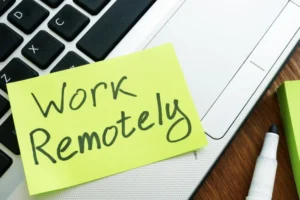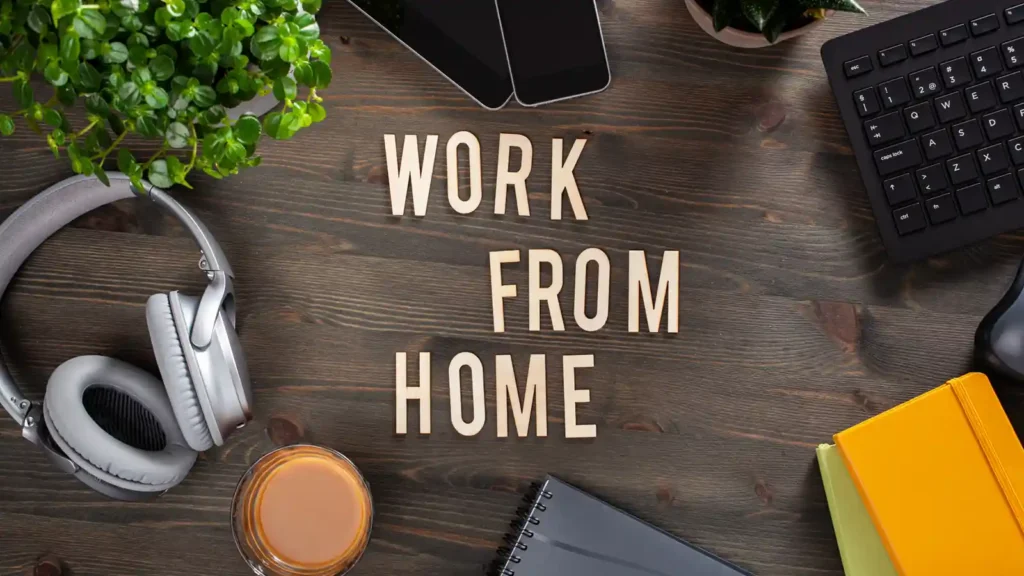Are you looking to start working remotely but have no experience? I understand.
Working remotely sounds great, right? You can wake up without rushing, no need to dress up or deal with traffic.
You can work from anywhere—your bed, a cozy coffee shop, or even the beach. It’s a dream for many people, but what if you’ve never done remote work before?
Where do you even start if you don’t have experience? I’ve been working remotely for four years, and trust me, it’s possible to start from zero—even if you’ve never done it before.
I began with no remote experience, but by learning and using the right steps, I built a successful remote career.
If you feel unsure, like I did, don’t worry. There are things we can do to help you get started.

1. Identify Your Transferable Skills
The first step to starting remote work is to see what skills you already have. You might think you need to learn everything new, but you probably already have many useful skills.
I looked back at my past jobs, volunteer work, and side projects. What skills did I use? What did I achieve?
Many skills from regular jobs work well for remote work too.
Technical Skills: These are skills with tools or software. For example, I know how to use Google Docs, spreadsheets, and email. These tools are common in remote jobs, so basic tech knowledge is a big plus.
Soft Skills: Think about your communication skills. Can you write clearly? Can you explain things well? Remote work needs a lot of writing—emails, messages, and updates. I realized being clear and working well with others is very important.
Management Skills: Even if you haven’t been a manager, skills like managing your time, organizing tasks, and setting priorities help a lot. When working from home, no one is watching over you, so you need to be organized and disciplined.
2. Build a Strong Online Presence
Now that you know your skills, it’s time to show them to employers online.
Get on LinkedIn: If you’re not on LinkedIn, start now. It’s where most professionals connect. Update your profile with your skills and experience. Share articles or ideas to show what you know.
Create a Portfolio or Personal Website: If you have work samples, show them off! I made a simple website with what I offer and testimonials from clients. Creatives especially need portfolios, but even customer service or marketing workers can have a website with a bio and testimonials.
Use Social Media Professionally: Using social media for work can help. Instagram or Pinterest are good for designers, marketers, or content creators. Keep your profiles active and updated.
The point is to make sure your profiles are polished and professional. Employers want to see that you take your online presence seriously.
3. Network with Remote Workers
I can’t say this enough: networking is key. The biggest lesson I’ve learned working remotely is that it’s not just what you know—it’s who you know.
When I started remote work, I didn’t have any connections in the remote world, but I changed that by being active.
📱 Join Our WhatsApp Food Channel!
Get daily ideas, decor tips, and exclusive room stylish deals — straight to your phone. Don’t miss out!
👉 Join NowHere’s what helped me:
Join online communities. Facebook groups, YouTube comments, and forums are full of helpful people. These groups introduced me to remote workers who shared their experiences.
Attend webinars and online conferences. Many remote-first companies host these events. They’re great for learning and meeting others.
Reach out on LinkedIn. Send polite, genuine connection requests to people in remote jobs—not to ask for a job, but to learn from them.
Talking with others helped me build relationships, get advice, and sometimes even find job leads.
It’s all about building trust and showing a genuine interest in contributing to the remote work community.
Read More: 19 Best Remote Job Boards Better Than Indeed and LinkedIn
4. Gain Experience Through Freelancing or Internships
If you don’t have remote work experience yet, try freelancing or internships.
These helped me a lot when I started. Freelancing lets you build skills, create a portfolio, and earn money.
Over time, you can get better projects and higher pay. Internships are great for learning and growing in a lower-pressure setting. Sometimes, internships lead to full-time jobs.

5. Develop Strong Communication Skills
Remote work depends a lot on good communication. Since you don’t see people face-to-face much, you need to be clear in emails, messages, and video calls.
What helped me:
- I sent clear updates on my work, even when no one asked. It’s better to over-communicate than to leave people guessing.
- I listened carefully during meetings and asked questions if something wasn’t clear.
- I kept messages short and to the point because everyone’s busy.
6. Show You Are Ready for Remote Work
When I was ready, I made sure to prove it in interviews and on my resume by sharing:
-
How I can work independently without supervision.
-
How I manage my time and meet deadlines.
-
My experience with tools like Slack, Zoom, Google Drive, and Trello.
Employers want to know you can succeed working remotely, so show them you’re prepared.
Also Check: Top Remote Jobs You Can Get This Year
Conclusion
Starting remote work with no experience can feel scary, but you can do it.
By finding your skills, building an online presence, networking, gaining experience, improving communication, and showing you’re ready, you’ll be on your way.
I started just like you, and now I love working from home every day. You can do it too.
📱 Join Our WhatsApp Food Channel!
Get daily ideas, decor tips, and exclusive room stylish deals — straight to your phone. Don’t miss out!
👉 Join Now
